International remittance is regarded as one of the most important forms of financial inflows for developing and under-developed countries. Cash coming in from developed countries helps poverty-stricken and underprivileged families to sustain. Cross-border payments in the pre-COVID era looked quite promising with World Bank predicting them to reach $574 billion in 2020 and $597 billion in 2021. However, the Coronavirus outbreak drastically changed the course of the industry with the financial institution now forecasting a sharp decline of 20% in the global remittances this year.
The remittances flow to low and middle-income countries (LMIC) that stood strong at $554 billion in 2019, is likely to drop to $445 billion in 2020. The major reason for the projected decline is the loss of employment and wages of migrants in host countries due to COVID-induced lockdowns. About 75% of the world’s migrants live in countries which have reported close to three-quarters of the total COVID-19 cases and about 90% of the remittances are sent by migrants from these countries, says the data from World Bank.
Impact on Recipients and Migrants
Remittances inflow from foreign countries account for close to 5% of the GDP of as many as 60 LMICs, and the share may be larger for some least developed countries and small island developing states. As foreign direct investment is expected to take a hit of more than 35% this year, remittances will be the major source of external financing for a number of under-developed and developing nations.
Declining international remittances can affect the local economies of the recipient countries and have a negative effect on investments, day-to-day consumptions, education and healthcare services, at a time when they too are experiencing the repercussions of the pandemic. The communities who were barely making the ends meet to begin with, may be pushed further into poverty as COVID-19 exacerbates the situation.
The recipients are not the only ones affected, migrants and expats are equally impacted by the current situation. A significant number of migrants have informal employment or jobs that cannot be done remotely. In most cases, they are not benefitting from host countries’ COVID responses, resulting in substantial or even complete income loss. Migrants are thus stranded in foreign countries with little to no income, unable to support their families back home and battling the high living costs in developed nations that may be eating into their savings.
Challenges for Remittance Service Providers
Lockdowns and social distancing have had adverse effects on the operations of international remittance service providers, pretty much like all the other businesses across countries. A wide number of agent locations are kept closed to follow government guidelines or operating with limited network and staff. Business volume has taken a hit as migrants lack funds to send back to their countries or are unable to make the transactions due to physical constraints. Similar problems can also be noticed in receiving countries, especially the branches with limited or no digital financial options.
Liquidity challenges are also proving to be a hindrance for remittance service providers. Exchange rates have been unstable as the economies around the world are affected by the pandemic with cash flow disruptions hampering the balance between digital and liquidity accounts. The dwindling volume of international remittance transactions have naturally affected the business of these service providers, while operational expenses continue to remain the same.
Overcoming the Challenges
While migrants as well as the money remittance service providers are not left with many choices, certain critical measures can be taken to ensure that remittances keep flowing and pick up once the economies are ready to recuperate.
Going Digital
The first and foremost action should be to widen the reach of digital financial channels and promote their use. There’s a need to scale up the digital solutions and explore collaborations or partnerships with fintech service providers to implement new innovations. Integrating remittance services with mobile money solutions is also a great idea for accelerating disbursements for the recipients.
Boosting the Adoption of Fintech Solutions
In order to make digital channels a success, remittance providers need to work with public institutions to boost the adoption of fintech services amongst the senders and receivers. Co-ordinated efforts need to be undertaken to reach people in both the host as well as the home countries, and promote digital literacy to bring the less privileged within the digital spectrum.
End-to-end Digitization
Ensuring end-to-end digitization of services that involve receiving wages directly into the accounts of the migrants and the option for the receivers to pay bills and make merchant payments from digital channels can help boost this initiative. These measures are equally important to maintain social distancing and prevent COVID-19 by avoiding cash.
Offering Cost-Efficient Services
The onus of making international money remittances cost-effective lies as much on policy makers as it does on service providers. Governments and regulatory bodies can offer economic support for the industry’s benefit during this crisis. As for the service providers, they need to explore fresh digital options to reduce transactions costs for remittances and pair them up with value-added services to provide relief to the senders as well as the receivers.
As money remittances witness their first decline in recent times, it will be up to the service providers to turn the situation around by being open to adapting to newer technologies. Reducing the dependencies on currency exchange as well as cash is the need of the hour and inter-operable mobile money solutions are the way to go. These solutions can bring a range of financial and banking services on your fingertips as well as drive financial inclusion for the underserved in remote areas.


















